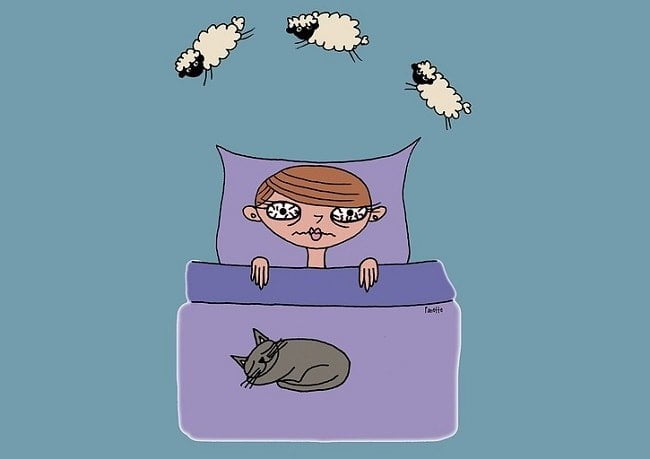
Pregnancy is a time when most women are filled with joy, brimming with excitement, and exploding with anticipation over the arrival of their unborn child.
However, this can also be a period of significant discomfort, especially when it comes to sleep – even women who have never suffered from sleeping problems in the past may experience them when are with child.
The 1998 Women and Sleep Poll of the National Sleep Foundation found that 78% of women found sleep difficult when they were pregnancy compared to other times.
In fact, extreme fatigue, particularly during the first and third trimesters, has been reported by some pregnant women. That this happens is not surprising given the demands – both physical and emotional – of pregnancy.
Causes of Sleep Disorders in Pregnant Women
One of the events that can be blamed for sleep disorders in pregnant women is changing hormone levels. Progesterone levels increase when a woman is carrying a child and can be used to explain why they feel sleepy during the daytime, an occurrence that mostly happens during the first trimester.
A change in hormone levels can restrict muscles which can lead to snoring and may also be responsible for frequent visits to the bathroom at night. This coupled with other discomforts that come with pregnancy like nausea all contribute towards the loss of sleep.
Anxiety and excitement over the birth of a child also lead many pregnant women to experience insomnia. Getting sufficient sleep even gets harder once the baby is born.
Expected Sleep Changes for Each Trimester
Each trimester brings with it a set of new discomforts and each woman experiences the changes happening in their body differently.
Some women report not experiencing the common ailments associated with pregnancy while others just feel awful. Here is a look at the sleep changes to be expected by pregnant women for each trimester:
First Trimester
The first trimester marks the early development of a fetus. Although the baby is still small at this point, certain changes in the body can affect the expectant mother leading to:
- Getting up frequently to go to the bathroom. As the fetus grows, it puts pressure on the bladder which then leads to frequent urination. A solution might be to cut down on drinking fluids, but this is a mistake as the body needs them. However, it helps to limit caffeine – which stimulates the bladder – consumption before bedtime.
- Experiencing sleep disruptions due to physical and emotional stress associated with pregnancy. Hormonal changes and increased fatigue lead to mood swings. As such, it’s not surprising for pregnant women to feel happy one moment then miserable the next. Morning sickness is another symptom some women suffer during the first trimester to different degrees. Pregnant women also battle with fatigue as the body works hard to make a supporting environment for a child resulting in women being easily worn out.
- Feeling sleepy during the day. Given all the changes that are happening and the effect they are having on the body, it comes as no surprise that some women suffer a loss of sleep leading them to feel sleepy during the day.
Second Trimester
For most women, sleep improves during the second trimester as the growing fetus doesn’t put as much pressure on the bladder as it moves above it.
While some of the discomforts are eliminated, anxiety about labor and delivery, finding a balance between motherhood and work, and dealing with a changing relationship with partners contribute to emotional stress and thus affect sleep.
Third Trimester
The home stretch of pregnancy is also the period where most sleep problems occur. Here are some of the reasons that cause loss of sleep:
- Discomfort caused by a growing belly. Women gain weight when they are with child, and the added pounds put pressure on the back, causing soreness and aches. Discomfort can also be felt around the pelvis and hips as the ligaments loosen in preparation for labor.
- Fatigue caused by needing to wake up frequently to visit the bathroom. While the frequent urination problem was partly solved by the baby moving above the bladder during the second trimester, the problem returns during this trimester as the position of the fetus puts pressure on the bladder again.
- Exhaustion caused by various symptoms. The increased production of progesterone can cause heartburn and constipation. Progesterone relaxes muscles, including the ones in the esophagus responsible for keeping food and acid down in the stomach and the ones tasked with moving digested food through the intestines.
Although it may be hard, it’s important for women to make sleep a priority when they are with a child as well as when the baby is born. The good news is that there are different strategies for sleep management to consider – it’s just a matter of choosing the best method during early pregnancy.
Sleep Management Strategies for Pregnant Women
It’s important for women to get a good night’s rest when pregnant. Even better, it’s best if they have a method down during the early stages of their pregnancy. Here are some tips:
- Get some exercise. Regular exercise is recommended for pregnant women as it not only promotes physical and mental health but also helps achieve deep sleep. However, it’s best to avoid vigorous exercise within four hours of going to bed.
- Eat right and healthy. Eating food that is rich in carbohydrates, such as bread or crackers, promotes sleep. Consuming snacks high in protein helps keep blood sugar levels up and prevents hot flashes, headaches, and bad dreams.
- Use extra pillows. Adding more pillows supports the back and tummy. Those who like sleeping on their side can add a pillow between their legs to support their lower back, making sleep easier. Using particular kind of pillows help as well and these include wedge-shaped pillows and full-length body pillows.
Sleep deprivation will be one of the many issues women have to deal with when carrying a child. Knowing what to expect and how to handle it can help pregnant women sleep better.
Insomnia After Pregnancy
New moms may also struggle with insomnia and not be able to get back to sleep once they feed their precious newborn. Insomnia may occur due to the anxiety of being a new mom, or simply because of all of the emotions and feelings that come with having a brand new baby.
Whether you are a new mom or a seasoned pro, bringing a new baby home can be stressful. This stress can easily lead to sleepless nights and days, which can lead to even more stress.
If you are stressed out about your baby, then its likely you may have some nights that sleep just doesn’t happen. Here are a few tips to help you wind down and get back to sleep.
If you are stressed out about your baby, then its likely you may have some nights that sleep just doesn’t happen. Here are a few tips to help you wind down and get back to sleep.
Take Away the Screens
Ipads, computers, and phones are the worst culprits whenever it comes to insomnia. The backlights on the screens can keep you awake for hours past your normal bedtime.
Whenever you look at a backlight screen for long periods of time, your brain thinks that you still want to be awake. In order to fall asleep, your brain must have total darkness.
The darkness allows natural melatonin to be released throughout your body and make you sleepy. If you constantly look at your phone in bed, then you aren’t allow your brain to release the necessary melatonin to make you sleepy.
Try removing all screens from your bedroom and don’t look at your phone or computer for extended periods of time for at least an hour before you fall asleep.
The darkness can help your circadian rhythms reset and help you kick your postpartum insomnia.
Wind Down with Calming Activities
If you are having trouble falling asleep at night because your mind won’t stop racing, then try a few calming activities before going to sleep. Drinking caffeine free tea and reading a book are two wonderful activities that can help calm you down and get to sleep.
Taking a bath, showering at night, or writing in a journal are also great activities that can help keep your mind at ease and help you to fall asleep and stay asleep throughout the night.
Forgo the Caffeine
Caffeine is satan’s brew whenever it comes to trying to fall asleep. If you are drinking caffeine throughout the day, then its time to cut your intake in order to try to sleep better.
Coffee in the morning or one soda per day can help you stay awake and alert throughout the day, but try to completely cut out caffeine past noon.
By reducing your caffeine content, you may initially notice you feel more fatigued throughout the day. However, you will soon get used to drinking less caffeine and will be able to keep your energy levels high by sleeping soundly at night.
Stop Ruminating
Ruminating is the exact opposite of what you should be doing at night. It may be hard to shut your mind off at night, but it is absolutely essential to shut your mind off at night in order to fall asleep quickly.
In order to stop worrying and thinking about everything that could go wrong, try thinking up a story that you can add to each night. A simple plot line will help lull you into a deep sleep as you think of all of your characters and storylines.
Create a Bedtime Routine
Bedtime routines are essential to help you wind down at night. Start your bedtime routine with your baby by bathing your baby and putting them to sleep. Then, once your newborn is snuggled into bed, you can start your own routine.
A good bedtime routine is one that encompasses relaxing events that will help you become sleepy. Baths are a great start to a wonderful bedtime routine.
Pick out your favorite bubble bath and put on some music in order to relax completely every night. Or, find a great book to delve into to help your mind stop racing and your body to relax.
Whatever you choose to do, just find a routine that fits you and your needs, and that won’t feel like work to do each night.
Consult an Expert
If lifestyle changes don’t help you fall asleep faster, then it may be time to consult a doctor. Your OB/GYN can help you find the right medications or the right natural supplements to help you fall sleep.
Sleeping is absolutely essential in order to keep you healthy and your baby healthy. If you aren’t sleeping, then you won’t be able to be the best mom to your new baby.
Sleep can help you become less stressed and can help you bounce back after labor and delivery. Try these tips first, and if sleep still eludes you, then consult your doctor.



